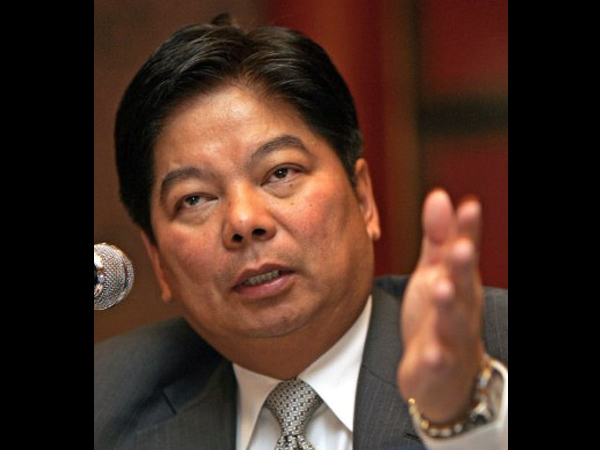The country’s “very strict” bank secrecy law is hampering prevention of money laundering, such as the first ever cross-border entry of dirty money that found its way into the Philippine financial system and casinos, Bangko Sentral ng Pilipinas (BSP) Governor Amando M. Tetangco Jr. said Friday.
Tetangco, who also chairs the Anti-Monetary Laundering Council (AMLC), hence reiterated his call to allow prying into a wider array of bank deposits “under certain conditions.”
READ: Timeline: $81-M Money Laundering
“When a case reaches AMLC, that is when investigation [begins]. So the incident has already [happened]. We need some kind of preventive measures. The prevention of this particular activity is being hampered by the very strict bank secrecy law,” Tetangco told reporters on the sidelines of the Chamber of Thrift Bank’s national convention.
In this regard, Tetangco said he was amenable to easing or lifting the bank secrecy law under certain conditions, without elaborating.
Senate investigation is ongoing with regards the $81 million stolen by hackers from Bangladesh’s central bank that flowed into the Philippine banking system.
READ: MONEY LAUNDERING: Where did $81 million go?
On the part of AMLC, Tetangco said: “if the findings [of ongoing investigation] show that further action has to be taken, then AMLC is prepared to do that.”
While declining to comment on the specific case involving Rizal Commercial Banking Corp. (RCBC) and remittance agency Philrem Service Corp. due to confidentiality provisions under existing laws, Tetangco noted that “in principle, if there is liability discovered in the course of investigation, then the appropriate action should be taken.”
“This principle applies to all covered institutions. It does not have to be a specific bank or specific remittance company. We will apply the same thing if there is a similar situation,” Tetangco added.
The BSP chief downplayed the impact of the money laundering scandal on the banking system as a whole.
“If you look at the behavior of the financial markets for the last several days, there has been no indication that there is a negative impact. In fact, the peso has been appreciating in the last few days. The bond markets are steady, the PSE (Philippine Stock Exchange) has been steady and sometimes going up,” he pointed out.
The BSP chief nonetheless admitted that “we have to recognize that there is a risk associated with this.”
“We need to address that [risk]. We have to show that there is [an] action being taken with respect to any particular case and with respect to further strengthening the legal framework,” Tetangco said.
This was the reason why the AMLC has been working with Congress to expand the coverage of the Anti-Money Laundering Act to include other institutions such as casinos as well as real estate, he said.
“This is an opportune time to take a look at this and really make a decision consistent with our desire to strengthen the anti-money laundering framework in the country so we don’t become a center for money laundering. We will be working with the government and Congress… We have to make sure that the prevention aspect would be there,” Tetangco said. RAM
